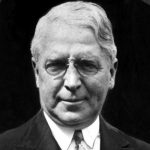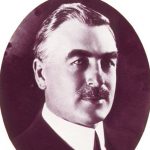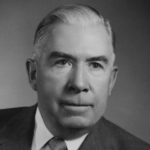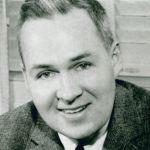Bob Irvin died much too young – at the age of 47 – but not before establishing for himself a reputation as one of the greatest automotive journalists of all time. For Irvin, it was the perfect profession, combining his skills as a writer and investigator, with his love of automobiles. Born in Highland Park, Michigan and raised in Detroit, Robert W. Irvin graduated from University of Detroit High School and attended the University of Detroit. Following military service in Korea, Japan and the Philippines, he became the auto editor for United Press International, rising to the position of Detroit Bureau Chief. He joined the Detroit News in 1965, and worked there for twelve years, where he established himself as one of the most respected auto writers in America. From 1977 until his death three years later in 1980, he worked at Crain Communications, where he served as editor-at-large and associate publisher of Automotive News and AutoWeek magazine. Irvin’s expertise was often tapped into by those seeking an honest and accurate assessment of the industry, and it even landed him a spot on television’s “Meet the Press.” Known to his colleagues as “The Monk” – partly due to his appearance and demeanor, as well as his abstention from tobacco, alcohol and gambling – Newsweek magazine once recognized him as the best newspaperman on the auto beat. It was a title he relished. Irvin’s stories were regarded as the authoritative word on the auto industry and he got his material from the boardroom to the factory floor. He test drove – and wrote about – cars of all makes, and would sometimes venture off to test drive – tongue in cheek – recreational vehicles, buses, even an army tank. He once boasted that he had seven cars in his driveway at the same time, all delivered by the manufacturers in hopes that Irvin would write about them. Irvin accomplished all of this with an incredible work habit, interviewing or writing hour after hour, in the office, out on location, at home, in airplanes, in hotels. He had the ability to write rapidly with little or no revision, often with a telephone tucked under one or both ears. His production was amazing, once landing four separate stories on the front page of the Detroit News on the same day. Bob Irvin’s reputation as a journalist was getting national attention. In 1970, when novelist Arthur Hailey was gathering material for his fictional automotive novel, Wheels, he hired Irvin to provide background material and to read the manuscript for authenticity. In addition to his fee, Irvin was rewarded by being a real-life character in the book, in a section of the book dealing with an automotive press conference. Irvin was also a pioneer in consumer affairs reporting, at a time when corporations were never truly held accountable for their products.In 1971, Irvin received a tip from consumer advocate Ralph Nader, who suspected faulty engine mounts in some Chevrolet models. Not satisfied with Nader’s tip alone, Irvin began his own research, ultimately talking with more than 300 customers who had experienced similar problems. He eventually wrote 35 articles, convincing General Motors to recall 6.7 million units, the largest ever at that time.GM complained that the issue was tried in the press, not the government. Irvin replied, “GM is blaming me for the recall. Well, I’m willing to take the blame – or maybe it’s the credit.” The incident, though, never tarnished the relationship between Irvin and General Motors. Then-GM chairman Thomas Murphy said, “ Bob Irvin was an outstanding reporter. He was one of the best ever to cover the automotive scene. He was tough, but fair. In every way he was a credit to his profession.” Bob Irvin died as anyone would have expected — working – collapsing as he was boarding an airplane in Chicago, headed back to Detroit. His sudden death stunned an entire industry. Lee Iacocca, then-chairman of Chrysler Corporation, said, “Bob Irvin was a real friend. He was as good an automotive journalist as there ever was, and maybe ever will be.”
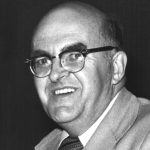
Robert W. Irvin
Inducted 2008
read more
